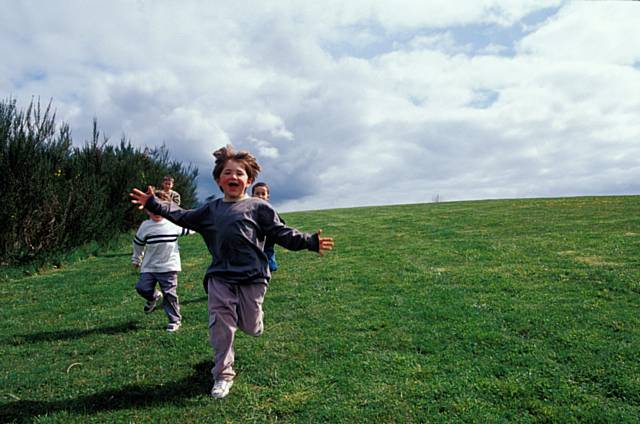Stay safe this summer
Date published: 25 July 2014

Stay Safe this Summer
The North West Ambulance Service is asking the public to take extra care in the region over the summer holiday period.
The majority of the 999 calls the Trust receives are for genuinely ill people and during periods of hot weather, there is a marked increase in the number of people experiencing respiratory problems, such as asthma. But there are the incidents the Trust is called to that can be easily avoided.
Director of Emergency Services, Derek Cartwright explains: “We all want to enjoy the hot weather, but no-one wants an avoidable visit to the accident and emergency department.
"During the summer, we traditionally see a rise in the number of cases such as children/young people who go swimming in lakes and rivers, last year we had 71 call outs to water related incidents 64 of them were during the month of July and August so we would urge parents and care providers to think carefully about what their children are doing over the holidays.”
“Our services are urgently needed by those who are seriously ill or have life-threatening conditions and the public can help us by not calling 999 unless it is a serious emergency and by taking care of themselves and others.”
The Trust has issued some advice which it hopes will help avoid accidents which often occur during the summer months.
Water safety
Water is great fun, but can be very dangerous. Most young people drown when swimming when and where they shouldn't for example in unsupervised lakes, rivers and canals or when warning flags are flying.
During school holidays or in hot weather, many people may be tempted to cool off with a swim in a local river, canal or in the sea. Follow our simple instructions and learn to spot and keep away from dangers and help keep yourself and others safe when you are in or near water.
If you see someone in difficulty, tell a Lifeguard if there is one nearby, or dial 999, ask for the Police or the Coastguard if you are at the beach.
Parked Cars
Temperatures inside parked cars can soar in a very short space of time. Children under the age of two are at the top of the ‘at risk’ group of heat exhaustion and heatstroke. Children should never be left alone in a parked car.
On a hot sunny day with temperatures of 22 degrees, the heat inside a parked car can reach in the region of 40 degrees within one hour.
Leaving a child in a parked car can lead to health risks including:
- Dehydration
- Heatstroke
- Hyperthermia
- In some circumstances, possibly death
- Even on cloudy days, the temperature in a parked car can rise to cause a health risk to those inside.
Follow these simple tips to ensure your child isn’t in any danger:
- Don’t leave them in a parked car alone, especially on a hot, sunny day
- Leave the doors of a parked car unlocked so children can escape in case of an emergency – in 2010, two children aged six and 10 were rescued from a hot car after writing ‘help’ on the condensation in the window after their care provider left them in a locked car for an hour. The children were taken to hospital for treatment.
- Don’t leave your child sleeping in the car, although you might have a grumpy tot, it’s better to be safe than risking heatstroke.
- If you are with your child and waiting for someone in a parked car, keep all windows down and measure the temperature, wait outside if it’s cooler.
- Carry a spare set of keys in case you become locked out of your car whilst your children are on the inside.
- Bring plenty of water to keep little ones hydrated on road trips.
- Whilst it is important to keep safe in the water, it is equally important to keep hydrated in warm weather.
- Dehydration occurs when your body loses more fluid than you take in. In hot weather, it is important to drink plenty of water, fruit juices and diluted squash.
- However, it's important for children to replace lost fluid to prevent dehydration. Like adults, children lose more water when they are in hotter climates and when they are physically active.
- You should give your child healthy drinks as part of an overall healthy, balanced diet.
- If your baby is dehydrated, take them to see your GP as soon as possible. They'll be able to recommend appropriate treatments such as those outlined below.
Derek adds: "The advice may seem straightforward but these are the types of avoidable accidents we see every day during the hot weather.
“By keeping safe, we can all enjoy the summer, however brief it may be, and we can ensure that those who really need our help can receive a timely response.”
Do you have a story for us?
Let us know by emailing news@rochdaleonline.co.uk
All contact will be treated in confidence.
Most Viewed News Stories
- 1Middleton school hails another outstanding inspection result
- 2Former councillor and hospital campaigner Jean Ashworth has died
- 3Drugs and cash seized during morning raids at suspected stash houses
- 4No trams between Oldham and Rochdale this Sunday
- 5Northern Healthcare opens supported living service in former Rochdale hotel
To contact the Rochdale Online news desk, email news@rochdaleonline.co.uk or visit our news submission page.
To get the latest news on your desktop or mobile, follow Rochdale Online on Twitter and Facebook.


